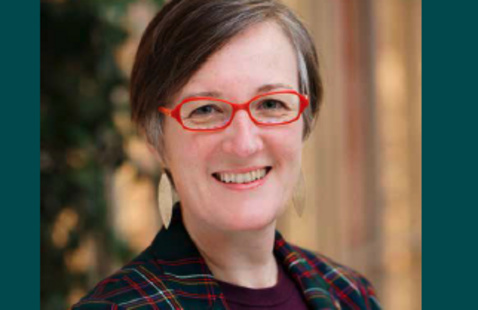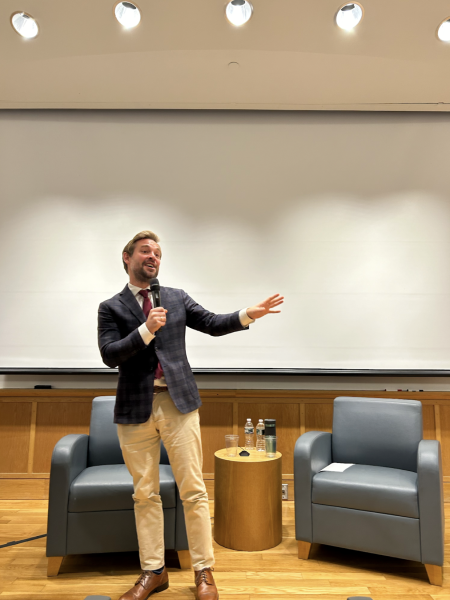First ‘History Conversations’ Lecture of 2023 Focuses on Women’s Health — Past and Present
Colgate University’s Department of History held its first History Conversations Lecture of the Spring 2023 semester titled “Writing Women’s Health into History” on Wednesday, Mar. 1. The conversation, led by visiting professor Melanie Kiechle ‘03, focused on how history has ignored women’s health while connecting past experiences to new lessons learned from the COVID-19 pandemic.
History Conversations is a series of lectures held by a member of the department — in this case, visiting professor Melanie Kiechle ‘03 led the discussion. Kiechle, who is regularly an associate professor of history at Virginia Tech, is the author of “Smell Detectives: An Olfactory History of Nineteenth-Century Urban America,” a book that focuses on the odors, illnesses, and medical writings of 19th-century America.
“My main goals were to explain how public health authorities ignored women’s experiences of illness in the nineteenth century, […] and to show [what history has ignored] through a close focus on one woman’s suffering,” Kiechle said.
The focus of the lecture, according to Kiechle, was to answer where women’s health fits into history.
Kiechle began by speaking about the difference in the manner in which women and men were treated in the medical world in New York City and Boston. She mentioned a report about public school heating in Boston schools where they disregarded female teachers’ preferences for room temperature because they considered them to be untrustworthy, as they were too “sensitive.”
Kiechle discussed personal accounts of sick women who went to medical practitioners for help. One of these accounts was from Celestia Webster, a teacher in upstate New York who fell ill and wrote about her condition in her diary on a daily basis. Webster, whose account is from 1866, never officially mentioned a diagnosis — the standard at the time — but, after her death in 1880, a census revealed that she had tuberculosis.
Sophomore Carly Grizzaffi attended the conversation and found it to be informative and eye-opening to the effects of downplaying women’s health.
“I definitely enjoyed it, and felt very engaged throughout,” Grizzaffi said. “I learned a lot.”
Kiechle concluded by asking what accounts like Webster’s give us now and how they could be helpful in the present day, determining that these accounts have once again become relevant given the effects of long COVID. Since, according to Kiechle, we don’t know enough about it right now to know all of its effects, and it will probably take decades to do so, recovery from an infection or re-infection does not mean recovery for all.
Kiechle stated that she changed her research methods following the COVID-19 pandemic.
“[COVID-19] was not only a mortality event, but a mass-disabling event,” Kiechle said. “People responded, but didn’t recover.”
Sophomore Emily Faulk also enjoyed the lecture.
“I found it interesting that [Keichle] discussed the history of women’s healthcare in the context of the pandemic,” said Faulk. “It made me think about women’s healthcare differently, for sure.”
Keichle hopes that those who listened to her lecture will think differently about COVID-19 after learning the historical context of gender discrimination in the medical community.
“I hope the audience came away knowing that while COVID-19 and long COVID-19 are new diseases, the experience of illness today has a lot in common with the past,” Kiechle said.







